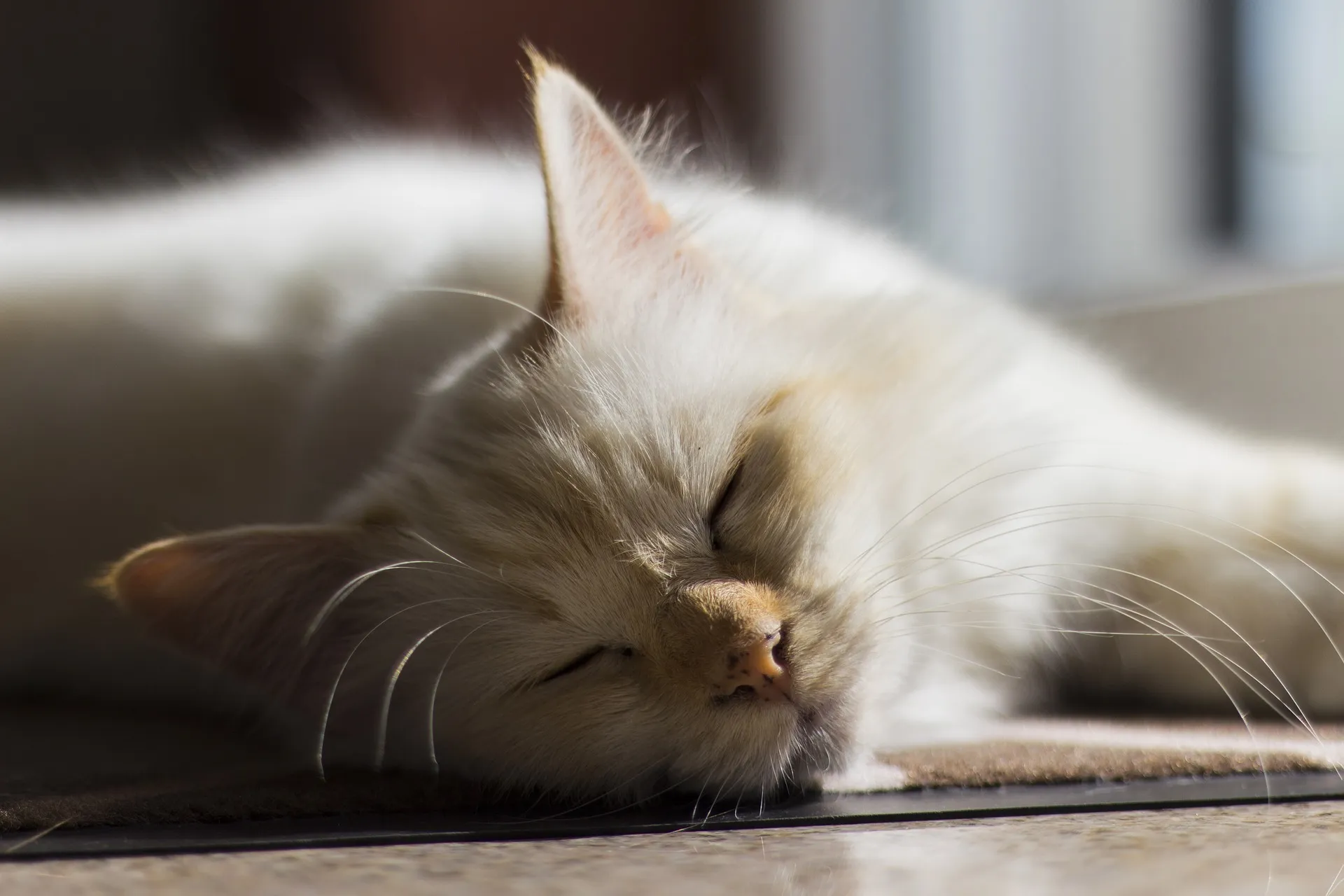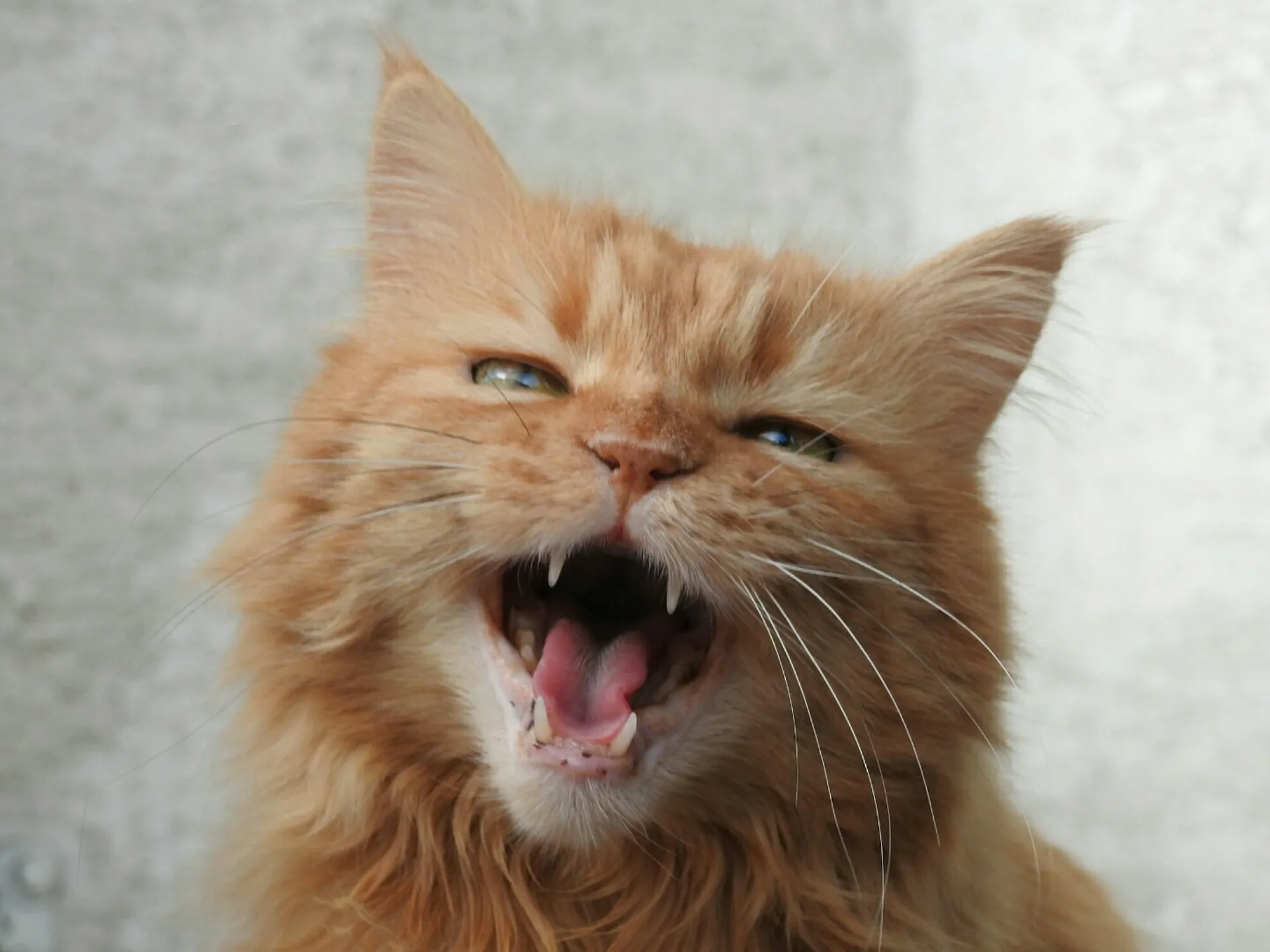If you’ve ever been startled by your cat’s unexpected cries during the night, you’re likely wondering, “Why does my cat suddenly wake up meowing?” While subtle movements during sleep are common, an abrupt awakening with loud meows can signal various underlying causes. These range from harmless dreams to more serious health concerns. Understanding these nocturnal vocalizations is key to ensuring your cat’s well-being and a peaceful night for both of you.
The Mysterious World of Cat Dreams and Nightmares
Cats often exhibit twitching whiskers or paw movements during REM sleep, a phase where dreams are vivid. Veterinary neurologist Adrian Morrison notes that cats may move their heads as if tracking something, suggesting active dreaming. Research indicates cats dream about recent experiences and can have nightmares. During these states, twitches, stretches, snores, and squeaks are common. If your cat recently experienced a frightening event, like being chased by a dog, they might dream about it and wake up startled, letting out a plaintive meow as they transition to wakefulness.
 Cat lying on a door mat in the sun, enjoying a peaceful nap
Cat lying on a door mat in the sun, enjoying a peaceful nap
Behavioral and Environmental Factors Behind Nighttime Meows
Beyond dreams, many environmental and behavioral factors can prompt a cat to vocalize at night. Catster experts suggest boredom, hunger, or discomfort in a new environment are common reasons. Loneliness is another powerful motivator; cats may seek attention or companionship. A lack of sufficient daytime stimulation can lead to pent-up energy, making them more active and vocal at night. Establishing a consistent routine, including regular feeding times and ample playtime, significantly enhances a cat’s sense of security. Adjusting feeding schedules to multiple small meals, with one before bed, or using automatic feeders, can prevent hunger-induced wake-up calls.
 Close-up of an orange cat meowing directly into the camera
Close-up of an orange cat meowing directly into the camera
Recognizing Potential Medical Causes for Vocalization
A change in a cat’s nighttime vocalization can signal underlying medical conditions. Issues like hyperthyroidism, kidney disease, or pain can manifest as increased meowing and restlessness. Senior cats are particularly prone to feline cognitive dysfunction (dementia), which often causes disorientation and confusion at night, leading to more vocalization. Anxiety, whether situational or health-related, can also increase meowing. Therefore, a comprehensive veterinary check-up is the crucial first step to rule out any physical or neurological issues before behavioral interventions.
Effective Strategies to Address Your Cat’s Nighttime Meows
Addressing your cat’s meowing starts with understanding its cause. Prioritize a veterinary visit to exclude medical conditions like dementia or other illnesses. Once medically cleared, focus on behavioral and environmental solutions. Provide stability and confidence through a consistent daily routine, including regular feeding and plenty of attention and playtime. This reduces anxiety and strengthens their sense of security. If excess energy is the issue, incorporate multiple engaging play sessions daily, with an extended, vigorous one right before bedtime. For hunger-driven meows, transition to smaller, more frequent meals, ending with one before you sleep, or utilize automated feeders. Carefully observing your cat’s clues will help differentiate dreams from other issues.
When your Cat Suddenly Wakes Up Meowing, causes range from dreams to behavioral or medical issues. By observing their behavior, noting changes in appetite or sleep, and seeking veterinary advice, you can identify the root cause. Adjusting routines, enriching their environment, or addressing health concerns are crucial steps. Understanding and responding to these nighttime cries ensures a happier, healthier cat and peaceful nights for everyone.
